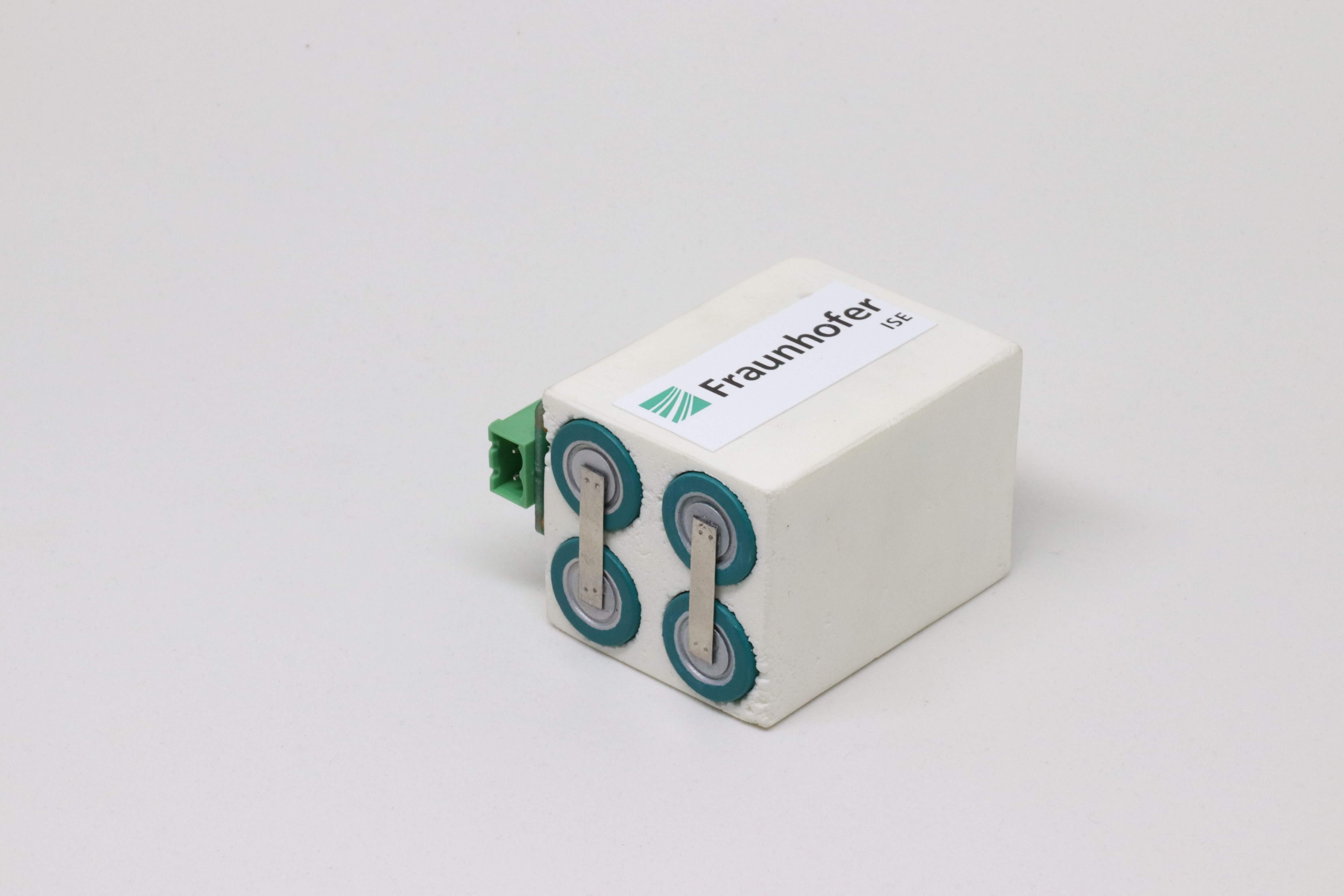| Duration: | January 2016 - November 2019 |
| Contracting Authority/ Sponsors: | Federal Ministry for Economic Affairs and Ministry (BMWi) |
| Project Partners: | RRC power solutions GmbH; TRUMPF Hüttinger GmbH + Co. KG |
| Project Focus: |
Rural-Li – Robust Lithium Battery storage for Use in Isolated PV Systems of low Power
Development of a robust, highly efficient, durable and cost-effective lithium-ion battery storage with a passive cooling system based on phase change materials (PCM).
In the project Rurali-Li, funded by BMWi (FK 0325901C), a robust, highly efficient, durable and cost-effective lithium-ion battery storage with integrated inverter is being developed for use in isolated low-power PV systems. The system meets requirements derived from this application and the specific environmental conditions of the potential target markets such as high ambient temperatures in very hot regions, areas with high humidity and mountainous regions. These environmental conditions, which are typical for isolated applications, demand special requirements with regard to mechanical robustness, battery management, thermal management and safety concept.
The project begins with a profound analysis of available lithium-ion cells, an extensive electrical and thermal characterization of the cells in the laboratory, aging tests as well as the development of adapted cell models as a basis for an optimized simulation based system development.
Due to the high ambient temperatures to be expected in isolated PV system applications, the use of phase change materials as thermal buffers in the battery module are investigated in this project. By storing latent heat, the operating temperature should not exceed a defined value or only exceed it for a short period of time, with the smallest possible system volume. In addition to the use of phase change materials, alternative conventional cooling concepts are considered with regard to their robustness, reliability as well as specific costs and possible optimization potentials are identified.
In order to achieve the goal of an optimized system design of the lithium-ion battery storage with integrated inverter especially for the rough environmental conditions of isolated PV systems, models for the additional system components – besides the battery cell models – are developed, validated on the basis of available measurement data and incorporated into a system model for isolated PV systems. With this system model, different concepts for different environmental conditions can be investigated. The aim is to identify a system solution that covers as broad a range of applications as possible and at the same time represents an optimum for this very price-sensitive market segment. In addition to the investment costs, the lifetime costs must also be taken into account. The cost analysis is based on the aging tests and the aging models derived from the performed tests.
